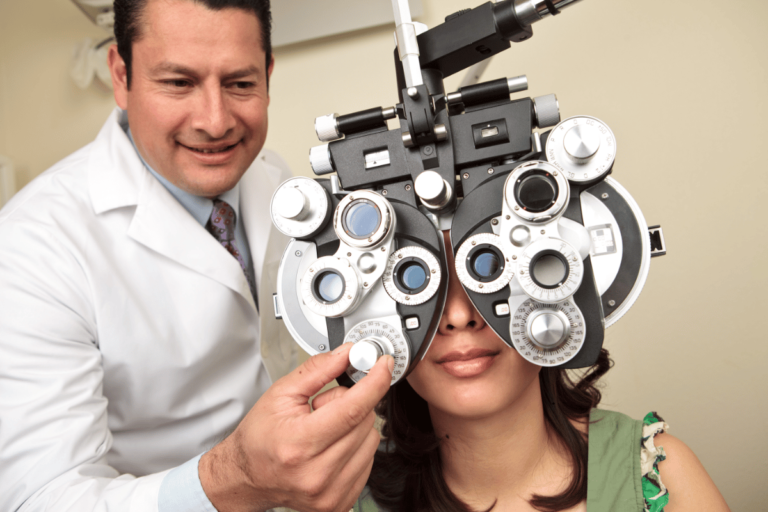Clinical Research Coordinator Job Description
Clinical Research Coordinators oversee protocol compliance, regulatory adherence, and team coordination in clinical trials. Responsibilities include liaising with stakeholders, ensuring participant recruitment, and maintaining accurate documentation. Qualifications typically include a bachelor's degree, clinical research experience, and knowledge of Good Clinical Practice guidelines. Attention to detail, effective communication, and strong analytical skills are essential. Understanding trial management, data collection, regulatory requirements, and team dynamics is vital. Exploring further will reveal career growth opportunities, necessary skills, and additional traits for success in this role.
Key Takeaways
- Liaising between research team, sponsors, and regulatory bodies for smooth study operations.
- Ensuring compliance with protocols and regulations to maintain study integrity.
- Managing participant recruitment, scheduling visits, and overseeing data collection.
- Monitoring adverse events, maintaining accurate documentation, and analyzing data.
- Developing study protocols, maintaining documentation, and contributing to data analysis.
Role Overview
In the domain of clinical research coordination, the role encompasses a multifaceted array of responsibilities that are pivotal to the successful execution of clinical trials. Job responsibilities of a clinical research coordinator include liaising between the research team, sponsors, regulatory bodies, and participants to guarantee compliance with protocols and regulations. This coordination involves overseeing the recruitment of participants, scheduling and conducting study visits, and maintaining accurate and complete documentation.
Coordinator role dynamics also involve ensuring that all aspects of the clinical trial adhere to ethical standards and Good Clinical Practice guidelines. Additionally, coordinators play a key role in monitoring and reporting adverse events, managing data collection and entry, and collaborating with investigators to analyze results. Effective communication skills are paramount in this role, as coordinators must interact with a diverse range of stakeholders while maintaining confidentiality and professionalism. The dynamic nature of the coordinator role requires adaptability, attention to detail, and a strong commitment to the integrity of the research process.
Key Responsibilities
A clinical research coordinator's primary responsibilities encompass the management and coordination of various aspects of clinical trials. This role involves overseeing the planning, implementation, and completion of research studies while guaranteeing compliance with regulatory requirements. One key responsibility is the development and maintenance of study protocols and documentation to ensure adherence to study procedures. Additionally, clinical research coordinators play an essential role in recruiting and screening participants, as well as obtaining informed consent.
Furthermore, these professionals are responsible for liaising with sponsors, investigators, and ethics committees to facilitate communication and ensure the smooth progression of the trial. They are also involved in data collection, analysis, and reporting, contributing to the generation of valuable insights. Project management is a fundamental aspect of the role, requiring coordinators to establish timelines, allocate resources efficiently, and monitor progress to meet key milestones. Continuous professional development through training programs is essential for staying abreast of industry advancements and best practices in clinical research coordination.
Qualifications Needed
To be considered for a clinical research coordinator position, candidates must possess a combination of relevant educational background and practical experience in clinical research settings. The educational requirements typically include a Bachelor's degree in a relevant field such as life sciences, nursing, or healthcare administration. Some employers may prefer candidates with a Master's degree or certifications in clinical research. Additionally, work experience is vital for this role. Candidates should have practical experience in clinical research, preferably as a research assistant, data coordinator, or in a similar role. Strong knowledge of Good Clinical Practice (GCP) guidelines and regulatory requirements is also essential.
| Educational Requirements | Work Experience |
|---|---|
| Bachelor's degree | Practical experience |
| Relevant field of study | Research assistant |
| Master's degree | Data coordinator |
Clinical Trial Management
Effective clinical trial management is crucial for the successful execution and completion of research studies in healthcare settings. Study coordination and protocol adherence are essential components of clinical trial management. Clinical research coordinators play an important role in ensuring that the study progresses according to the predefined protocols and guidelines. They are responsible for overseeing patient recruitment processes, ensuring that eligible individuals are enrolled in the study.
Additionally, study monitoring is a key task in clinical trial management. This involves regularly checking and supervising the progress of the study to identify any deviations from the protocol or any issues that may arise during the research process.
Clinical trial management requires meticulous attention to detail and effective communication skills to coordinate various aspects of the study successfully. By maintaining protocol adherence, overseeing patient recruitment, and diligently monitoring the study, clinical research coordinators contribute significantly to the overall success of the research endeavor.
Data Collection and Analysis
In the domain of clinical trial management, an important aspect that heavily impacts research outcomes is the careful process of data collection and analysis. Data collection involves gathering information from various sources, such as patient records, laboratory tests, and participant interviews. Clinical Research Coordinators play a significant role in ensuring the accuracy and completeness of the data collected throughout the study.
Once the data is collected, the next critical step is data analysis. This involves organizing, cleaning, and statistically analyzing the information to draw meaningful conclusions. Data analysis techniques may vary depending on the type of study and research questions being addressed. Clinical Research Coordinators must possess strong analytical skills to effectively interpret the results and communicate findings to the research team.
Result interpretation is a crucial part of the data analysis process. It involves making sense of the statistical findings and understanding the implications for the study. Clear and accurate result interpretation is essential for drawing valid conclusions and making informed decisions based on the research findings.
Regulatory Compliance
How does regulatory compliance impact the role of Clinical Research Coordinators in ensuring the integrity of clinical trials?
Regulatory compliance is a cornerstone in the clinical research field, and Clinical Research Coordinators play an important role in upholding these standards. Compliance training equips coordinators with the necessary knowledge and skills to navigate the complex regulatory landscape governing clinical trials. By staying updated on regulatory changes and guidelines, coordinators guarantee that all aspects of the trial align with current requirements, safeguarding the well-being of participants and the credibility of the study.
Regular compliance training sessions are essential for Clinical Research Coordinators to maintain a thorough understanding of regulations, ethical standards, and best practices. These sessions not only enhance coordinators' knowledge but also reinforce the importance of adhering to regulatory requirements throughout the trial process. Additionally, staying informed about regulatory updates is critical for coordinators to proactively address any compliance issues that may arise, thereby mitigating risks and ensuring the successful completion of clinical trials.
Team Collaboration
Regulatory compliance not only shapes the foundation of clinical research but also greatly influences the collaborative dynamics within the team of Clinical Research Coordinators. Effective communication strategies and project coordination are essential for ensuring that all team members are aligned with the study's objectives and timeline. Team dynamics play a vital role in the success of a clinical trial, with each member bringing their expertise to the table. Problem-solving skills are paramount when unexpected challenges arise during the research process, requiring quick thinking and adaptability from the entire team.
| Communication Strategies | Project Coordination | Team Dynamics | Problem Solving | Other Skills |
|---|---|---|---|---|
| Clear and concise communication | Establishing timelines and milestones | Collaboration and mutual respect | Analytical thinking | Attention to detail |
| Active listening | Task delegation | Conflict resolution | Critical thinking | Time management |
| Professional writing skills | Regular progress updates | Support and encouragement | Decision-making under pressure | Multitasking abilities |
Career Growth Opportunities
Career growth opportunities for Clinical Research Coordinators are intricately linked to their ability to expand their skill set and take on increasingly complex responsibilities within the clinical research field. As Clinical Research Coordinators gain experience, they may have the chance to move into more senior roles such as Clinical Research Manager or Clinical Research Director, offering significant career advancement possibilities.
Professional development is key for Clinical Research Coordinators looking to progress in their careers. This can involve pursuing certifications such as the Certified Clinical Research Professional (CCRP) designation, attending conferences to stay updated on industry trends, and seeking out opportunities for further education in areas like project management or regulatory affairs. Additionally, taking on leadership roles within research teams or getting involved in process improvement initiatives can demonstrate readiness for higher-level positions.
Skills and Traits Required
Given the evolving nature of the clinical research field and the increasing demand for skilled professionals, Clinical Research Coordinators must possess a diverse set of skills and traits to excel in their roles. Communication skills are paramount as these professionals are required to interact with a variety of stakeholders, including study participants, healthcare providers, and research teams. Clear and effective communication guarantees that all parties are informed and engaged throughout the research process.
Problem-solving abilities are essential for Clinical Research Coordinators to navigate the complexities that may arise during a research study. They must be able to identify issues, analyze data, and propose solutions efficiently to guarantee the smooth progress of the research project. Attention to detail is critical in this role, as even minor oversights can have significant implications for the validity of the research findings. Clinical Research Coordinators must meticulously review protocols, documentation, and data to maintain accuracy and compliance.
Organizational skills are essential for managing multiple tasks, deadlines, and priorities inherent in clinical research coordination. Coordinators must maintain meticulous records, coordinate schedules, and ensure that all aspects of the research study are executed smoothly. A well-organized approach helps to streamline processes and uphold the integrity of the research study.
Conclusion
To sum up, the role of a clinical research coordinator can be likened to a conductor orchestrating a symphony of data, regulations, and teamwork to guarantee the successful completion of clinical trials.
With a focus on meticulous organization, attention to detail, and effective communication, individuals in this role play a vital part in advancing medical research and improving patient outcomes.







